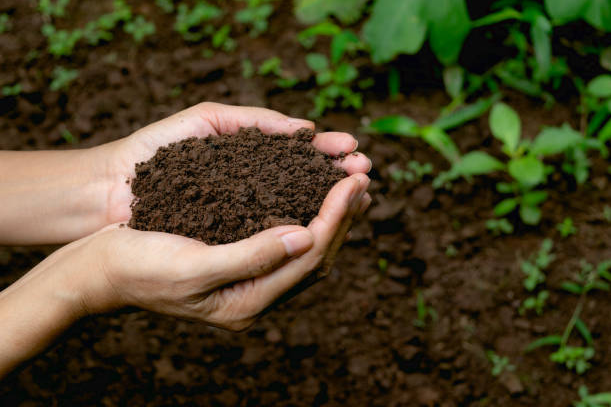
Exhibition time: 17-19 March, 2026 Shanghai, China
 中文
中文

Exhibition time: 17-19 March, 2026 Shanghai, China
 中文
中文

Poor soil condition can affect the growth and health of plants. A combination of issues like nutrient depletion, sandy soil, low or high pH and other factors can cause plants to dry up, stunt growth and lead to death. Using compost and soil conditioner can improve the soil quality and boost plant growth, but in different ways.
Compost, in simple terms, is decayed organic matter. It is used to improve the nutritional content of the new or existing soil. Also, compost can be considered as a nutritional soil conditioner.
Soil conditioner can be defined as soil amendments which improve the soil structure or the physical properties of the existing soil. It helps in increasing aeration, water holding capacity, oxygen penetration and nutrient absorption in soil. Moreover, it can maintain the pH level as well.
One of the general differences between compost and soil conditioner is the particle size. Composts are made of finer materials, and it is usually meant to be dug into the soil whereas soil conditioner consists of smaller particles than compost.
Let’s see how compost and soil conditioner help the soil in different ways.
COMPOST
Compost, as you might know, can be made by decomposing organic waste in a controlled environment. A wide range of materials such as animal manure, fruits and vegetable scraps, kitchen waste and other waste generated from organic sources are used. Ready composts have few characteristics like dark colour, lightweight and it is a bit humid due to moisture content.
Compost, when mixed with soil, acts like a sponge which retains water. It releases the water when the roots of the plant need it. Additionally, compost can control disease spread. It also releases nutrient gradually in the soil and promotes the growth of beneficial microbes.
SOIL CONDITIONER
Soil can get exhausted after some years of use. The ideal physical properties of the soil are lost such as inter-particulate space which is important for aeration of the soil. Improper aeration causes root rotting. In such cases, you must use soil conditioner.
Different types of soil like sandy soils are unable to hold moisture and nutrients for long. Therefore, essential nutrients are washed away from the soil due to leaching. Silt soils do not allow water to saturate the soil as it forms slick when it gets wet. Clay soils are the most difficult type as dryness turns clay into dust, and when wet it turns into a concrete slab.
Thus, soil conditioners are highly helpful in improving the soil properties of aeration, water holding capacity and pH. Organic soil conditioners are known to improve soil quality over a period of time.
Irrespective of whether you use soil conditioner or compost, it is necessary that microorganisms break down the elements present in them. Plants do not absorb nutrients in non- assimilable form. It consumes nutrients which are processed by microbes and released. Due to various factors like the use of chemical fertilizers, degrading soil quality and climatic conditions, the plant growth is affected. It is, therefore, necessary to use innovative solutions to boost soil quality.
Organica Biotech’s MagicGro range of products helps in restoring natural soil microbiology. They act as soil conditioner and supports plant growth by securing nutrients and resisting pests. It keeps plants healthy and green and provides better quality of crop-yield by enhancing immunity, crop vigour and productivity.
From:organica biotech